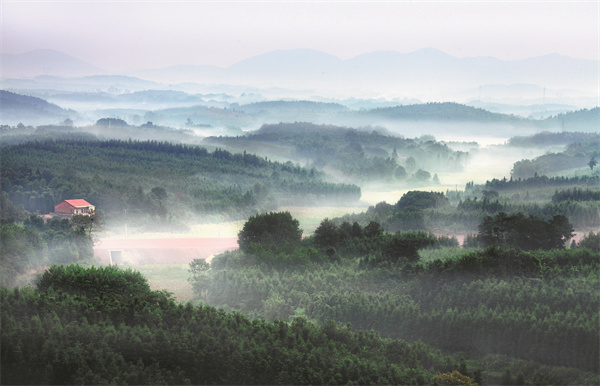

Wenchang deity, whose name literally means "cultural prosperity", is a legendary figure who helps students with learning. The name reflects villagers' respect for knowledge and education after bidding farewell to absolute poverty, says Liu Yuhong, a visitor to the site.
The 84-year-old pensioner in Jiayu knows the area's history well. In the early 1980s, villagers in Guanqiao lived in shabby sheds. They toiled year-round in the fields, but still had to worry about how to feed and clothe themselves.
Zhou Baosheng, 70-year-old local man, led the villagers to better incomes.
Villagers speak proudly of Zhou, who has been nominated six times as a deputy to the National People's Congress, China's legislature. When Zhou was selected as head of Guanqiao village's No 8 group in 1980, the group, as the smallest administrative unit in China is, nestled in the hills along the southern banks of the Yangtze River, was extremely poor. Sick villagers could not afford medicine and villagers had to barter for salt with eggs. The reason the area did not have a high grain yield was that one-third of the paddy fields were solely reliant on weather conditions. Zhou led villagers to dig ponds and irrigation ditches, and build motor generator stations. The next autumn, the group's grain yield rose by 3,500 kilograms, and for the first time, villagers did not have to worry about food.